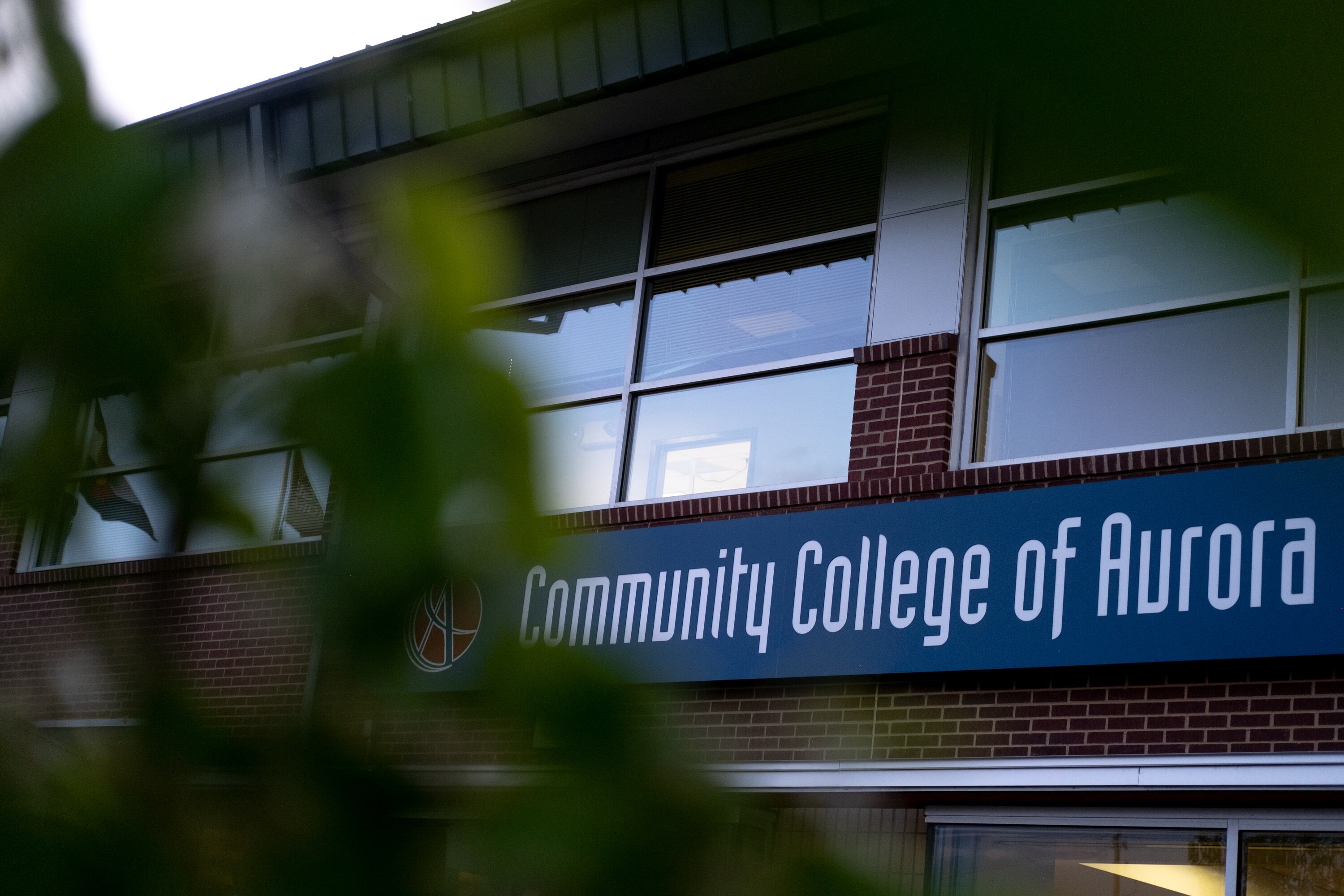Sign up for Chalkbeat Colorado’s free daily newsletter to get the latest reporting from us, plus curated news from other Colorado outlets, delivered to your inbox.
When Elmer Hernandez graduated from his Aurora high school in 2018, he had no plans to go to college. He didn’t feel smart enough, he says.
But this month, he graduated from the Community College of Aurora, and plans to attend CU Denver in the fall to finish a bachelor’s degree in computer science. And over the past year, Hernandez — the child of immigrants — worked on two major projects at his community college to help make education more accessible for other students and families like his.
One project was to translate the school’s website into Spanish to make the college experience easier for students, many of whom are bilingual. The other was to help prepare the school’s new portal for students and staff.
His work on the projects helped Hernandez realize that he had always been smart enough to go to college. What he lacked before was the bravery to overcome his fears about college.
“I always wanted to get into tech, but when I was in high school I never felt academically gifted, I was terrible at math,” Hernandez said.
For four years after high school, Hernandez worked in auto body repair. When he decided to go back to learning and enroll in college, he said he had been reflecting on the struggles his immigrant family went through, and what they were able to accomplish despite significant obstacles they faced.
“They were poor, they came to this country looking for a better life,” Hernandez said. “My parents, even to this day, their English isn’t perfect. Beside all of that, my parents were able to raise us. We were always well fed and everything. My father [started] a business. My uncle became a software engineer. I should be able to at least complete college. I was born in the U.S. and I speak two languages.”
Once he found that motivation, Hernandez was determined to succeed.
He sought academic help in school and also worked to give back. His first year, he worked in the school’s Office of Student Advocacy, connecting students to resources to ensure their needs were met.
While working in that department, he met the executive director of Strategic Communications and Alumni Engagement at the school. Talking with that leader, Hernandez learned about the school’s plan to translate the school website into Spanish.
Community College of Aurora is one of the state’s Hispanic Serving Institutions, with 33% of students identifying as Latino.
Michael Mestas, the college’s digital content coordinator who oversaw Hernandez in his year of work on the website, said the college wanted to translate the site as part of its equity work.
“Having such a large Spanish-speaking population, they wanted to make sure everyone had equal access and didn’t want to do it as a microsite, you know with just a few pages,” Mestas said. “We wanted to do the whole thing.”
Even though many students like Hernandez are bilingual, it’s sometimes easier to navigate websites in their native language. The Spanish translation could also be invaluable for Spanish-speaking parents of current or prospective students.
Hernandez was responsible for going through every page on the website and ensuring the translations were accurate and understandable. That work made him think of his family who isn’t fluent in English.
“To this day, they struggle to access resources that native English speakers can,” Hernandez said.
He added that even some resources that are translated aren’t always understandable to native Spanish speakers, “so I thought if we could give that to future students, that was big.”
Mestas said that Hernandez was driven in the work and was someone the team relied on: “It wasn’t just busywork. He made an impact.”
Hernandez said he was also happy to work on a project to help the community college migrate to a new internal portal for students and staff. The portal allows students to access class content, grades, financial information, and other services.
“I’m really excited for when that rolls out,” Hernandez said. “Students will have an easier time navigating through that portal. I think we solved a lot of problems.”
In both cases, Hernandez was able to use his own experiences — as a Spanish speaker, and as a student — as assets in his work.
Looking back, Hernandez wants others to know that if they go to college, there’s a lot of help available and all they have to do is ask.
“Utilize all the resources to 100% capacity and ask for help,” Hernandez said. “Don’t be afraid of the staff, don’t be afraid to talk to them. It might be awkward, but if you can push past that, people there are happy to help.”
Yesenia Robles is a reporter for Chalkbeat Colorado covering K-12 school districts and multilingual education. Contact Yesenia at yrobles@chalkbeat.org.






